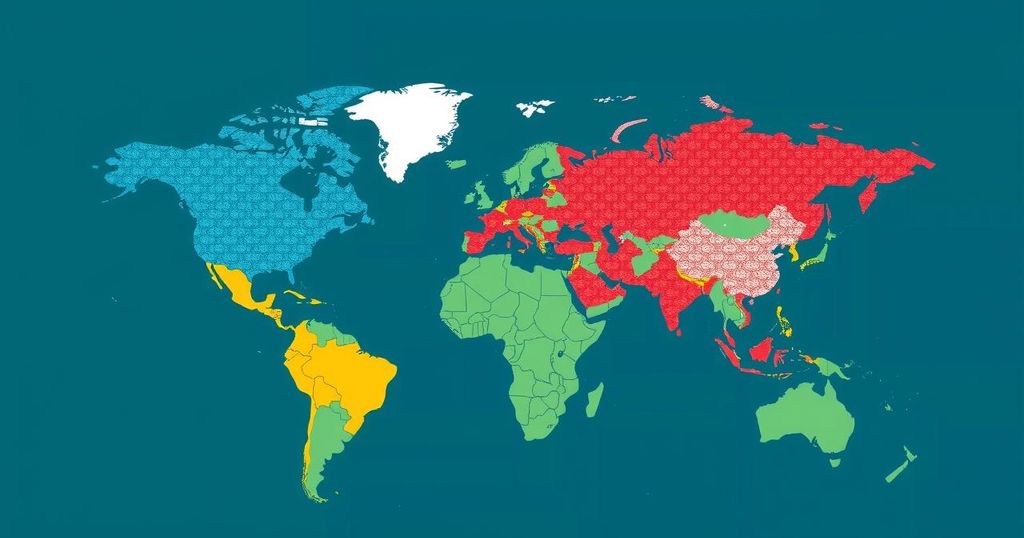Global Elections Reveal Erosion of Commitment to Climate Action in 2024

The unprecedented 2024 election year underscores a decline in global commitment to tackle the climate crisis, characterized by political wins for climate skeptics and a worrying shift in public priorities favoring economic concerns over environmental responsibilities. Despite serious climate disasters, electoral victories highlight a significant regression in climate discourse, culminating in a troubled Cop29 climate summit that points to a lack of decisive action from key leaders and nations.
The year 2024, heralded as a pivotal election period globally, reveals a troubling decline in commitment to climate action, despite increasing occurrences of environmental disasters. Major political victories have been claimed by figures such as Donald Trump, who dismisses climate concerns, and the rise of right-wing parties in European elections has further marginalized climate issues. Experts indicate a significant shift in public priorities, with climate topics overshadowed by pressing economic concerns, and the political discourse evolving from ‘green’ initiatives to a focus on ‘clean’ energy. As floods and heatwaves become more commonplace, countries like India witness climate action driven by direct impacts on agriculture, while in Europe and the US, climate agendas struggle amidst a backdrop of populism and skepticism. Despite some victories for climate-conscious parties in specific regions, overall momentum for climate initiatives appears to be waning, hindering global efforts to mitigate climate change. The recent Cop29 climate summit represents these challenges, taking place in Azerbaijan with minimal leadership participation and ongoing tensions regarding fossil fuel reliance. Activists and leaders alike express frustration over the apparent apathy of major polluters and the lack of decisive action on climate issues, which continues to undermine global environmental objectives.
Although there are still advancements in renewable energy sectors, the specter of political changes, notably a potential Trump presidency, threatens to exacerbate already critical climate scenarios. Consequently, experts emphasize the urgency of transforming public discourse and policy to adequately address the climate crisis, as every moment lost undermines future prospects for ecological sustainability.
The current political landscape amid a significant election year highlights a concerning trend, where global commitment towards addressing the climate crisis has faltered. Amidst natural disasters and emerging climate extremes, electoral outcomes in major nations reflect a shifting focus toward economic priorities and the ascendancy of populist leaders who often question the validity of climate science. The backdrop of recent global events includes notable climatic adversities and the ongoing economic struggles stemming from the COVID pandemic, conflicts in Ukraine and Gaza, and inflation concerns, all of which have contributed to the sidelining of climate discourse in favor of immediate domestic issues.
In summary, the alarming trend of diminishing climate action commitment illustrates a need for renewed focus and policy reform to address environmental crises effectively. While some regions have made strides towards promoting clean energy, the overarching narrative is that politics has increasingly prioritized economic stability over ecological responsibility. The recent election outcomes signal a profound challenge for global climate initiatives, reinforcing widespread calls for drastic action against the pressing realities of climate change. With time running out to prevent severe ecological consequences, there is an urgent need to shift the narrative and reclaim climate action as a central political priority.
Original Source: www.theguardian.com








